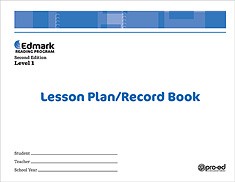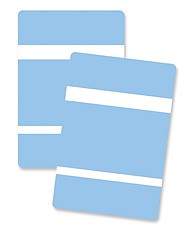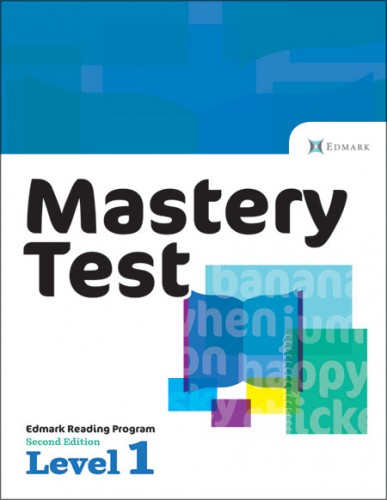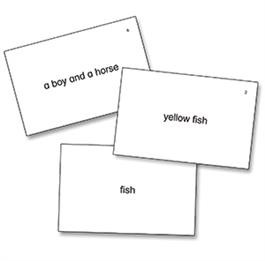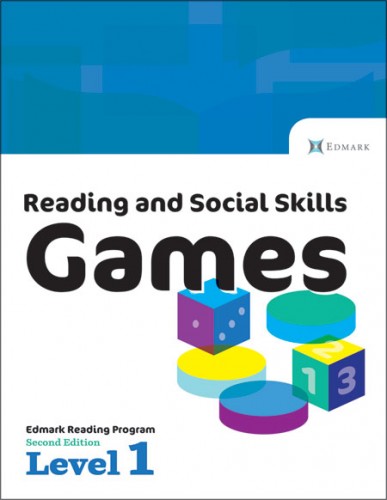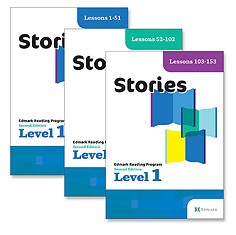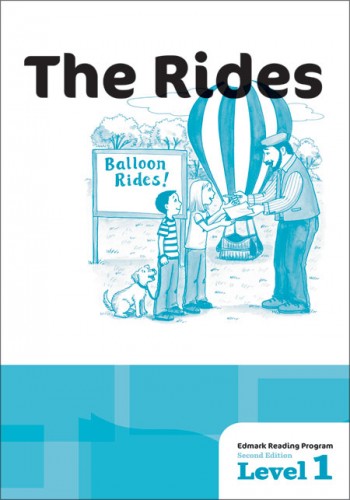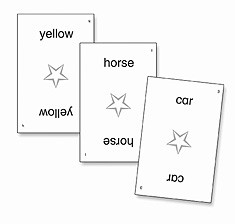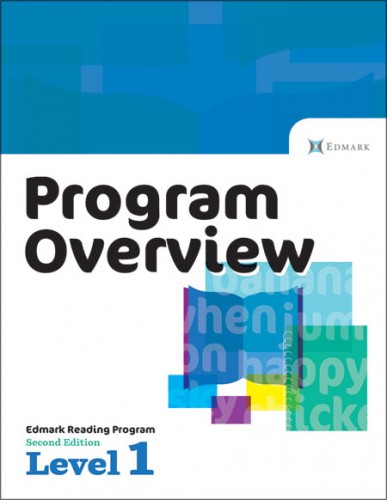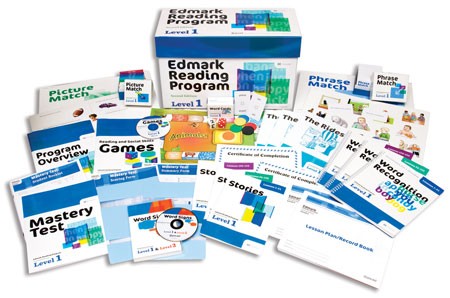Widely regarded as the "one that works," the Edmark Reading Program has long helped students who need an alternative to phonics.
The key to this success is the program’s use of a carefully sequenced, highly repetitive word recognition method combined with errorless learning. This approach eliminates incorrect responses and helps students view themselves as readers. The Edmark Reading Program ensures success to students of all ages who have not yet mastered beginning reading.
Students with a variety of differences and disabilities (e.g., students with developmental disability, intellectual disability, autism, hearing impairment, reading disability, or learning disability; learners of English as a second language) learn to read using the Edmark Reading Program. The Edmark Reading Program serves as the sole reading program for many students or as a supplement to a phonics-based or other type of reading program. Students from preschool through adulthood are successful with the Edmark Reading Program.
New in the Second Edition
- New look — New illustrations appeal to children and adults
- Organization — Simplified numbering and easy to plan and manage
- Stories — Many new stories and full-color illustrations
- Mastery Test — Integrated into the program to provide baseline data and periodic assessment
- Lesson Plan/Record Book — Combines lesson planning and ongoing progress monitoring
- Reading and Social Skills Games — Games with lesson plans teach social skills while reinforcing vocabulary and comprehension
- The Rides — This new reader is a student reward for completion of Level 1
- Judy’s Birthday Party — This new reader is a student reward for completion of Level 2
- Word Signs (formerly on DVD) — Online access to a video word-signing guide demonstrating the 350 words from Levels 1 and 2
Research-based Instructional Strategies
- Errorless Learning
- Positive Reinforcement
- Use of Manipulatives
- Oral and sight word vocabulary
- Controlled vocabulary stories
- Social Skills Enrichment
- Continuous Progress Monitoring
Learning Opportunities
- 200 Words from the Dolch Word List and basal readers
- Extensive comprehension practice of words, phrases, and stories
- Visual memory of words
- Left-to-right reading/tracking
- Thinking and discrimination skills
- Association between oral language and print
Recommended for
- Students with developmental disabilities or Autism
- Students with learning disabilities
- Title 1 students
- ESL students
- Preschool and kindergarten students who lack vocabulary development
- Non-Readers who struggle with phonics

 Proud to be Canadian
Proud to be Canadian